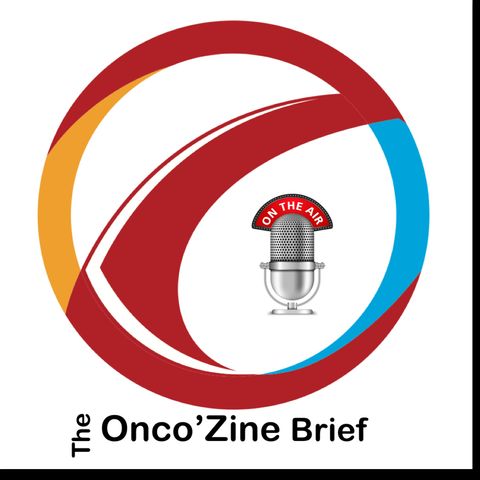A New Combination Therapy may help Stop Triple Negative Breast Cancer from Spreading

Descarga y escucha en cualquier lugar
Descarga tus episodios favoritos y disfrútalos, ¡dondequiera que estés! Regístrate o inicia sesión ahora para acceder a la escucha sin conexión.
Descripción
In this edition of The Onco’Zine Brief Peter Hofland talks with Dr. Salman Hyder, Professor in Tumor Angiogenesis and professor of biomedical sciences in the College of Veterinary Medicine and...
mostra másTogether with a team of researchers Dr. Hyder found that a combination drug therapy, reduces the spread of triple negative breast cancer to other locations of the body by 50%
A breast cancer cell is like a house with three locks on the front door. Keys, or receptors, allow drugs to unlock the door and kill the cell. However, in triple-negative breast cancer, these keys are absent, thereby resulting in few options for drug therapy.
Until now.
A protein called p53 suppresses and kills cancer in people.
However, in contrast - a defective, mutant form of p53 helps cancer cells grow and multiply.
Triple negative breast cancer lacks ways to treat the cancer with hormone therapies or anti-HER2 targeted therapies. While chemotherapy can work well in Triple Negative Breast cancer – and a patient may even respond better to chemotherapy than some other types of breast cancer - these drugs are toxic, and non-specific.
Research has shown that most people who die as the result of breast cancer, in particular women with triple-negative breast cancer, do so following metastasis, or spread of the cancer to other organs in the body. Triple negative breast cancer lacks ways to treat the cancer with hormone therapies or anti-HER2 targeted therapies.
While chemotherapy can work well in Triple Negative Breast cancer – and a patient with Triple Negative Breast cancer may even respond better to chemotherapy than patients with other types of breast cancer – chemotherapeutic drugs are generally toxic, and non-specific.
Dr. Hyder and his team wanted to see if a new combination therapy could provide a new, non-toxic targeted approach for treatment. In a preclinical study with two previously discovered drugs —one that restores the p53 protein’s ability to kill cancer cells and another that targets the blood vessels in order to kill cancer cells — they observed an effect on metastatic triple negative breast cancer.
And according to the researchers, the results are promising. Dr Hyder noted that the cancer did not spread as fast when both drugs were given separately, and a little more with the combination of the two agents.
The two investigational drugs, APR-246 and 2aG4, are currently in clinical trials. Researchers hope that these findings will help enhance personalized treatment for breast cancer by reducing existing cancer cells and preventing the spread of the cancer to other parts of the body.
Información
| Autor | Peter Hofland |
| Organización | Peter Hofland |
| Página web | - |
| Etiquetas |
Copyright 2024 - Spreaker Inc. an iHeartMedia Company
